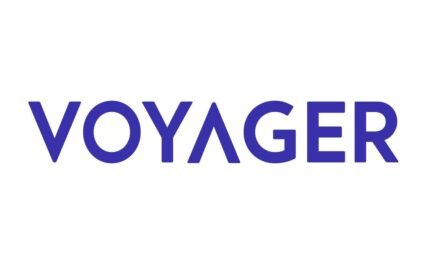
What Is Amazon FBA?

Amazon FBA is a popular way for ecommerce business owners to sell their products on Amazon. The ecommerce company has strict policies against sellers who do not properly manage inventory. It is also important for sellers to forecast sales to avoid running out of stock. If they are unable to do so, their customers may wonder if they are scamming them.
Disadvantages of outsourcing to Amazon FBA
Outsourcing to Amazon FBA can be a good option for those who want to maximize their productivity while freeing up valuable time. It will save you time and money, but the downside is that it requires you to hand over control of certain tasks. For example, you’ll no longer have to manage your inventory, or monitor your PPC campaign. This will make your time more efficient, and you won’t have to spend your time handling customer service issues.
Amazon has its own logistics and shipping services, so your costs will be significantly lower. You’ll have fewer headaches because Amazon will handle fulfillment. Amazon is also famous for its speed and accuracy, which means your customers won’t have to wait for an order to arrive. Additionally, they’ll handle the return management process, and you’ll only pay a returns processing fee based on the type of products.
Another major benefit of outsourcing to Amazon FBA is its ability to reduce labor requirements. Because the fulfillment process is handled by Amazon, you won’t have to worry about stocking products or paying employees. Your time will be freed up to focus on more profitable aspects of your business.
While Amazon FBA can eliminate labor costs, it comes with many disadvantages. It can be too expensive for those with small budgets or products that don’t sell for a large profit margin. Plus, the fees for handling customer service aren’t free – they are collected every month. Additionally, Amazon FBA isn’t a good option for sellers with low product turnover, as it will eat into their profits.
One disadvantage is the lack of face-to-face customer interaction. This is especially difficult for ecommerce retailers, who rely on customer data for re-marketing. In addition, it’s much harder to track customer orders without a face-to-face customer interaction. As a result, ecommerce retailers don’t have the same brand exposure as a traditional brick and mortar retailer.
Outsourcing to Amazon FBA can help you focus on other aspects of your business, such as marketing. Instead of spending hours on tasks that you don’t enjoy, you can focus on growing your business instead. Instead of spending your entire day preparing inventory, Amazon’s FBA employees can handle these tasks for you, freeing up your time for more important activities.
One disadvantage is that Amazon has strict rules that you must follow. They also have stringent requirements for packaging and shipping, so it’s important to follow their shipping policies and packaging guidelines. If you’re not sure how to do these things, it’s best to hire an expert.
Another disadvantage of outsourcing to Amazon FBA services is that you have to worry about the quality of service. Some FBA prep services offer less than reliable service and may not be dedicated year-round. Because of this, businesses should exercise caution when allowing a service to manage their inventory. It’s also important to keep an eye on your revenue growth and the size of your inventory.
Costs of Amazon FBA
Amazon FBA stands for “Fulfillment by Amazon.” It allows sellers to plug into Amazon’s distribution network to ensure that their products are shipped on time and at the lowest possible cost. This service offers sellers a host of benefits, including built-in ad platform, managed customer service, and access to over 30 million high-converting consumers. While the FBA process is not free, it can be worth it if you are selling enough units to break even.
The first thing you need to know about Amazon FBA is that the service will require a monthly fee. In addition to these costs, you will also need to pay seller account fees. There are two plans that you can choose from: the individual plan for beginners and the professional plan for sellers who want to sell more than 40 items a month.
Other costs of Amazon FBA include the cost of inventory management. This fee is based on weight and size, and it’s applied to every order. When you ship items through Amazon, you must follow the platform’s guidelines for labeling. These costs can add up, and most new sellers don’t pay attention to them.
Amazon FBA has numerous benefits for Amazon sellers, but it’s important to consider the costs carefully. This service can be a great choice if you are looking for a way to beat your competition and grow your store quickly. It can provide efficient shipping and logistics, while still giving you the freedom to focus on selling. It can also reduce the costs of running an online store.
As with any business, there are costs that are part of the Amazon FBA operation. It’s important to understand these costs so that you can make an informed decision about the best acquisition for you. As long as you’re prepared to make the necessary payments, you can expect to see significant returns over time. But don’t get a false sense of security.
Another expense associated with FBA is storage. The cost of warehouse space is based on volume and the number of items stored. If you want to store more than a few hundred units, you’ll have to pay an additional fee. In addition, you’ll need to pay for transportation of your inventory to the FBA center.
Amazon FBA can also involve outsourcing inventory management. If you want to be free of stress and hassles, you can hire a logistics operator to manage the logistics and shipping of your products. It’s important to choose a logistics operator that’s specialized in the e-commerce industry.
Amazon FBA fees vary depending on the country you’re selling to. In Germany, for example, the fees are based on the number of items you’re selling and the volume of space you have available in your logistics center. You can also pay for local distribution fees.
How to get started with Amazon FBA
If you are looking to start an Amazon FBA business on a budget, there are several things you should know. First, you need to know how to source a good product. It’s essential to find something that has great demand and is affordable for customers. To do this, you can use Google Trends to see what is popular in the market. Also, you can check out the hashtags that are associated with products on Instagram.
Second, you must determine what niche you want to sell. If you want to sell fashion clothing, you should choose an item that is trendy and relevant. You should also choose a product that is competitive in the market. You need to research the trend, price, visibility, and recognition of the product. It is important to find a product with a unique selling point, so it stands out from the rest. Remember that you can’t just sell any old product; you must find a niche that will grow and be profitable for you.
The next step in starting an Amazon FBA business is to create a storefront. This is similar to a full-fledged e-commerce website and will help you stand out from competitors. You can also register your brand through Amazon. The website has templates that you can use to create your storefront.
Third, you should create a business plan. A good business plan should include a mission, goals, market analysis, products, and marketing and sales plan. Once you have these, you can move on to determining your marketing budget. After that, you must find a supplier and create listings for your products.
Finally, you can get training. Many online courses and training resources can guide you through the process of starting an Amazon FBA business. Some of them include webinars and videos with successful sellers. Another good resource is the JungleScout Learning Academy. This academy offers training videos, webinars, and interviews with successful sellers. The academy also includes an Amazon FBA guide that will help you navigate the world of retail selling.
Setting up your financials is an important step in starting an Amazon FBA business. Manual bookkeeping and spreadsheets can become complicated and time-consuming, so setting up your business finances with a cloud-based accounting software can make your life easier. Sage, QuickBooks, and Xero are just a few examples of the many benefits that come with using cloud-based accounting software.
Another important step in starting an Amazon FBA business is finding a reliable supplier for your products. Trade shows, trade publications, and online listings are all excellent places to find suppliers. You can also use Amazon’s inventory as a source for some products. Having a supplier can help you get access to a large customer base that will buy your products.
Setting up an Amazon FBA business will require a significant financial investment, time, and energy. However, the startup costs of running an Amazon business are lower than that of most other businesses. Additionally, using Amazon FBA can help you get access to Amazon’s logistics network and free up valuable time for marketing.




























